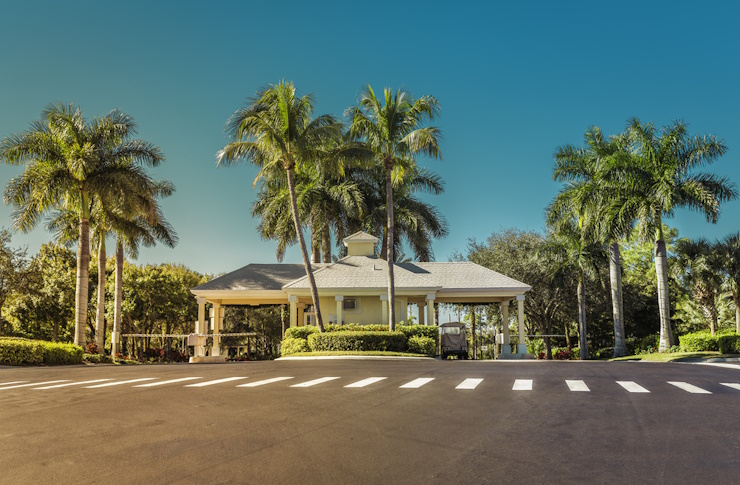Understanding Nursing Homes and Elder Care Options
As Australia's population ages, families increasingly face decisions about elder care. Nursing homes, residential care facilities, and in-home care services offer different levels of support for seniors who need assistance with daily living. Understanding the options available, their costs, and how they compare can help families make informed choices that prioritize both quality of life and financial sustainability for their loved ones.

What Are Nursing Homes and How Do They Differ From Other Care Options?
Nursing homes provide 24-hour medical care and supervision for elderly individuals who require assistance with daily activities and ongoing health management. Unlike independent living facilities, nursing homes employ registered nurses and healthcare professionals who can administer medications, manage chronic conditions, and respond to medical emergencies. These facilities typically offer shared or private rooms, communal dining areas, and organized activities designed to maintain residents’ physical and mental wellbeing.
Elder care residential homes, by contrast, often cater to seniors who need less intensive medical support but still require help with tasks like bathing, dressing, or meal preparation. These facilities emphasize a home-like environment and may offer more independence than traditional nursing homes. The distinction between residential care and nursing care often depends on the level of medical intervention required and the resident’s ability to perform activities of daily living.
What Services Do Elder Care Residential Homes Provide?
Elder care residential homes focus on creating comfortable, supportive environments where seniors can maintain dignity and independence while receiving necessary assistance. Services typically include help with personal care, medication reminders, housekeeping, laundry, and nutritious meals prepared on-site. Many facilities also organize social activities, exercise programs, and outings to keep residents engaged with their community.
These homes usually accommodate smaller groups of residents compared to large nursing facilities, fostering a more intimate atmosphere. Staff members often develop closer relationships with residents, which can improve quality of care and emotional wellbeing. Some residential homes specialize in dementia care or other specific conditions, offering tailored programs and trained staff to meet particular needs.
How Does In Home Elderly Care Work in Your Area?
In home elderly care allows seniors to remain in their own residences while receiving professional support services. Care workers visit the home on scheduled days or provide live-in assistance, depending on the level of care required. Services range from companionship and light housekeeping to personal care, medication management, and post-hospital recovery support.
This option appeals to many families because it preserves the senior’s independence and keeps them in familiar surroundings. Local in-home care agencies conduct assessments to determine appropriate care levels and match clients with qualified caregivers. The flexibility of in-home care means services can be adjusted as needs change, scaling up or down without requiring relocation. However, this option may not be suitable for individuals requiring constant medical supervision or those living alone without family support nearby.
What Are the Cost Considerations for In Home Senior Care?
In home senior care costs vary significantly based on the level of care required, the number of hours needed per week, and whether care is provided during standard business hours or overnight. Families should expect to budget for hourly rates that reflect the caregiver’s qualifications and the complexity of care tasks. Live-in care arrangements typically cost more than periodic visits but may be more economical than 24-hour shift-based care.
Many factors influence pricing, including geographic location, agency fees versus private hiring, and whether specialized skills like dementia care or nursing qualifications are required. Some seniors may be eligible for government subsidies or support packages that offset costs, making it essential to research available assistance programs in your area. Families should also consider indirect costs such as home modifications for safety, medical equipment, or respite care for primary family caregivers.
| Service Type | Provider Example | Estimated Weekly Cost (AUD) |
|---|---|---|
| Basic In-Home Care (10 hours/week) | Local Home Care Agency | $400 - $600 |
| Comprehensive In-Home Care (40 hours/week) | Private Caregiver or Agency | $1,600 - $2,800 |
| Residential Aged Care Facility | Various Providers | $500 - $1,200 (after subsidies) |
| Full Nursing Home Care | Accredited Nursing Facility | $800 - $1,500 (after subsidies) |
Prices, rates, or cost estimates mentioned in this article are based on the latest available information but may change over time. Independent research is advised before making financial decisions.
How Do Nursing Homes in Other Countries Compare?
Nursing home systems vary considerably across different countries, reflecting diverse healthcare policies, cultural attitudes toward elder care, and funding models. In countries like Sweden and the Netherlands, government-funded elder care is extensive, with high standards of care and lower out-of-pocket costs for families. These nations prioritize aging in place, offering robust home care services before residential placement becomes necessary.
In contrast, countries like the United States rely more heavily on private funding and insurance, resulting in higher costs for families and greater variability in care quality. Some Asian countries maintain strong traditions of multigenerational households, with nursing homes viewed as a last resort. Australia’s system combines government subsidies with means-tested contributions, positioning it somewhere between fully public and fully private models. Understanding these international differences can provide perspective on the strengths and challenges of local systems.
Making Informed Decisions About Elder Care
Choosing appropriate elder care requires careful consideration of medical needs, personal preferences, family circumstances, and financial resources. Families should begin by assessing the senior’s current health status and anticipated future needs, consulting with healthcare professionals for guidance. Visiting multiple facilities, asking detailed questions about staffing ratios, accreditation, and care philosophies helps identify the best fit.
Financial planning should start early, exploring government support programs, private insurance options, and potential eligibility for subsidized care. Many families benefit from consulting with aged care specialists or financial advisors who understand the complex funding landscape. Ultimately, the goal is to ensure seniors receive dignified, appropriate care that supports their wellbeing while remaining financially sustainable for the family. Regular reassessment of care arrangements ensures they continue to meet evolving needs as circumstances change.
This article is for informational purposes only and should not be considered medical advice. Please consult a qualified healthcare professional for personalized guidance and treatment.




